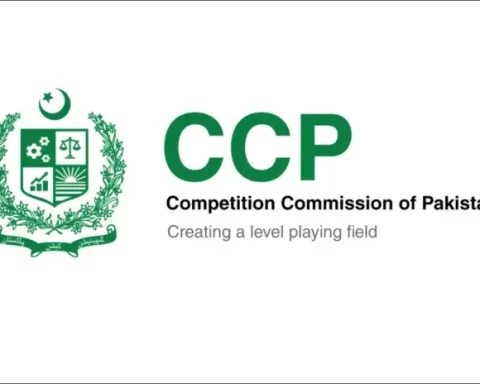ISLAMABAD: Caretaker Minister for Commerce, Industries, Interior and Overseas Pakistanis, Gohar Ijaz said on Saturday that captive plant based industry must shift to grid but at the same time electricity prices be fixed at Cents 9 / kWh instead of Cents 14/ kWh.
The government wanted to close down captive generation by Jan 25 aimed at shifting industry load to grid electricity but the electricity prices for industry have to be at regional prices as approved by SIFC Apex Committee
” Industry should not be made to subsidise other consumers as it has to be competitive to provide jobs and export products to the world market ,” he said adding that in present scenario, the increase in captive prices from Cents 10 / kWh to Cents 12/ kWh will lead to closure of industry as industry will loose orders to India Bangladesh and Vietnam where energy prices are less than 9 cents for industry.
Chairman All Pakistan Textile Mills Association( APTMA) Asif Inam expressed deep concern over yet another hike in gas prices that has further undermined Pakistan’s textile and apparel sector’s competitiveness in the global market.
According to the statement, the Government’s decision to increase the price of captive gas to Rs. 2,750/MMBTU while supplying industrial consumers with a 35% domestic gas: 65% RLNG blend will take the price of captive power generation significantly above regionally competitive levels. Moreover, the increase of 223% in gas prices comes at a time when grid electricity prices are already hovering above Cents 16.7 /kWh. The international competitiveness of Pakistan’s textiles and apparel exports is being continuously eroded by ever increasing energy prices that are, on average, over twice those in competing countries.
The rates of electricity for export oriented industry in Vietnam are Cents 7.2/ kWh, India average Cents 10.3/ kWh, ( Maharashtra Cents 6/ kWh), Bangladesh Cents 8.6/ kWh and Pakistan Cents 16.7/ kWh( cost of service Cents 9+ cross subsidies/ stranded cost Cents 7.7/ kWh.
Gas tariff in Vietnam is $ 9.8 per MMBTU, India $ 6.5 per MMBTU, Bangladesh $ 7.5 per MMBTU, Pakistan 35 per cent at the rate $ 7.5 MMBTU , domestic -65 per cent, RLNG blend $ 12.5 per MMBTU and domestic gas $ 10,6 per MMBTU.
APTMA maintains that production at these energy prices is not financially feasible and the sector will inevitably collapse if current conditions prevail. According to the latest figures, FY24 exports of textile and apparel for the July to January period were down by 2.99% compared to the same period in FY23, despite a low base effect. Pakistan is rapidly losing market share to regional economies like Bangladesh, India and Vietnam that have significantly lower energy tariffs.
At the same time, the country’s macroeconomic outlook remains bleak as high inflation continues to persist, and the external sector remains vulnerable with no improvement in foreign exchange earnings. The economy is stuck in a wholly unsustainable situation where industrial activity is shrinking with every passing day, with further implications not just for employment and poverty but also for energy sector revenue and the government’s fiscal position.
With industrial power consumption declining since at least Q2FY24, industrial contribution to the fixed costs of the power sector has also declined due to which it has necessitated an increase in the power tariffs of all other consumer categories, as reflected in the quarterly tariff adjustment (QTA) for the current quarter. This will likely cause a further decline in industrial power consumption and necessitate further increases in power tariffs for all consumers. We are stuck in a vicious cycle of declining consumption and increasing tariffs with no end in sight.
” Now, the Government of Pakistan wants to shut down captive generation by making it unaffordable but with grid electricity price also pushed up to 16.7 cents/kWh and expected to keep increasing, there is no financially viable source of energy for the industry to continue manufacturing with, ” said APTMA.
The current scenario where industry is expected to subsidize other consumers through cross subsidies in energy tariffs, is untenable and counterproductive to shared goals of economic stability and growth. These cross subsidies are an economic distortion that cannot be exported and therefore significantly weigh down on the international competitiveness of Pakistan’s manufacturing sectors.
” If corrective action is not urgently taken, over 50 percent of firms in the textiles and apparel sector are at high risk of shutting down over the coming weeks which will cause widespread unemployment and social unrest, ” APTMA maintained.
The Association urged the Government to reconsider its stance on energy pricing for industrial consumers. To incentivize a shift away from captive generation and increase consumption of grid electricity, it should remove the cross subsidies from power tariffs for industrial consumers and bring them down to a regionally competitive level of Cents 9 /kWh.
Moreover, the government must allow B2B power contracts with a use of system/wheeling charge of Cents 1-1.5 /kWh. This is the only sustainable solution in the long-term considering the advent of the EU Carbon Border Adjustment Mechanism and other green regulations in key Western markets, as it will allow procurement of green energy at regionally competitive end use prices.
Ends









